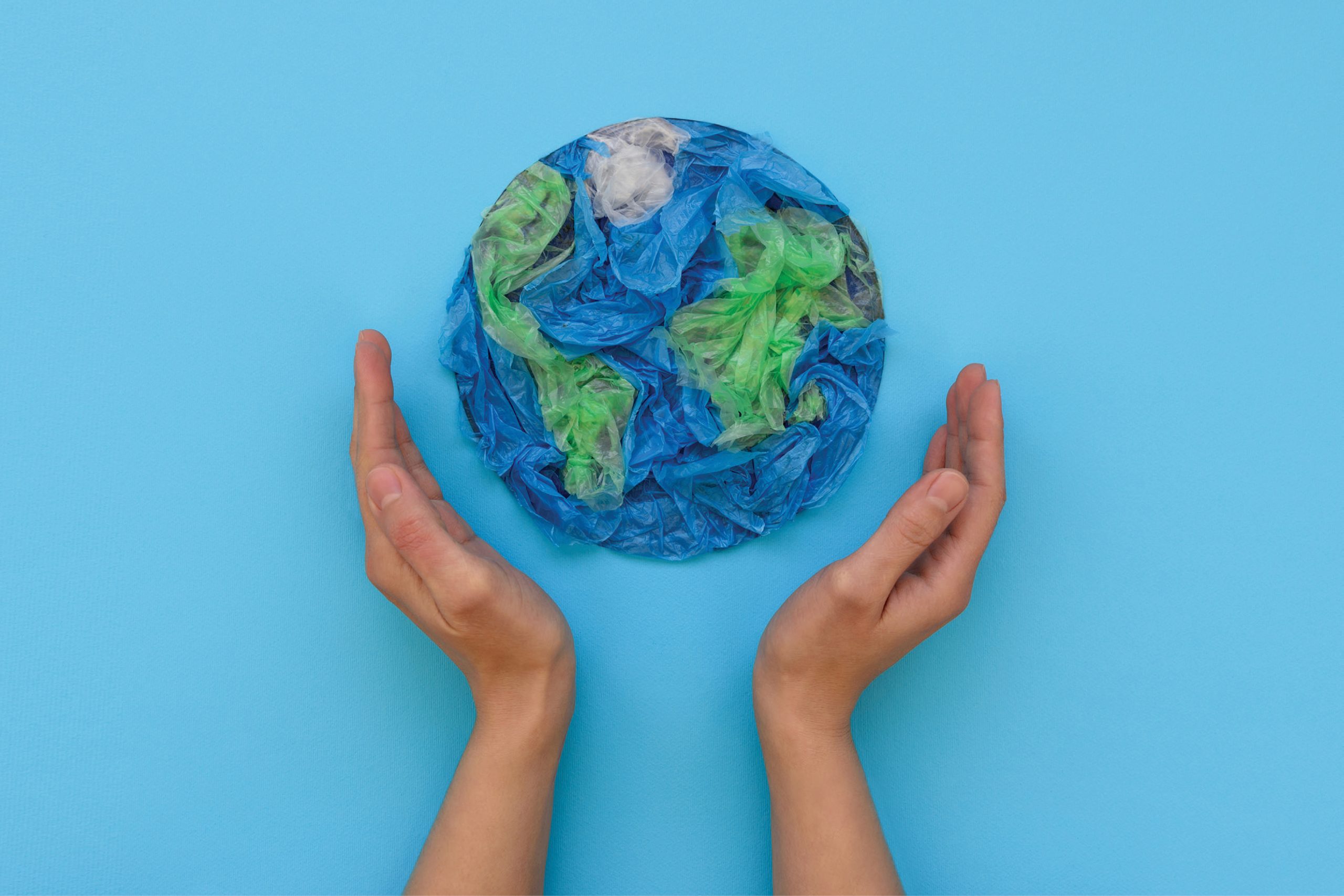Last year, 140 million people nationwide pledged to participate in Plastic Free July, an initiative to help decrease plastic pollution and make the Earth a little greener. By the end of the month, an estimated 2.6 tons of plastic waste had been reduced. While the end of July is almost here, you can still make little changes to reduce your plastic waste all year round.
at the grocery store
- Loose produce: Look for loose produce instead of buying plastic-wrapped fruits and vegetables. You can bring your own reusable produce bags instead of the single-use plastic ones that are usually available at the store. Visiting a local farmers market also is a great way to get produce with less plastic packaging.
- Reusable bags: Instead of plastic bags provided at the grocery store, bring your own reusable shopping bags. To make sure you don’t forget it, leave it in an easily accessible place, such as by the front door or in the car. Make sure you return it to its usual spot after you unpack your purchases—that way, you’ll always know where it is.
- Water bottles: Stay hydrated with a reusable water bottle to eliminate single-use plastic bottles. Stainless steel is a durable plastic-free option, or you can repurpose household items like glass jars or bottles.
- Plastic straws: Rather than using single-use plastic straws, opt for sustainable options like stainless steel, bamboo or glass. There are foldable straws that can easily be kept in your purse or pocket for when you’re at a restaurant or bar. When ordering, just make sure you request that it be brought to you without plastic straw. If you receive a plastic straw, don’t throw it away. Instead, reuse it.
- Bulk foods: Visiting a bulk food store for items like flour, nuts, cleaning products and more can be an easy way to reduce the plastic you bring home. Look for paper bags to use or bring your own containers to fill if possible.
around the house
- Cleaning products: An easy way to reduce plastic waste is to pick cleaning products that don’t use plastic packaging. You also can find refillable options of products, such as window cleaner, dishwashing liquid and more. For cleaning brushes and clothes, choose ones with natural fibers rather than synthetic, or consider reusing old socks or towels instead.
- Laundry: You can prevent microplastics from entering the waterway by opting for clothes that use natural fibers. When buying detergent and fabric softener, look for products that can be purchased in bulk or can be refilled. If you’re hanging laundry to dry, grab metal or wooden clothing pegs instead of the less durable plastic ones.
- Party supplies: Celebrate without balloons or other single-use decorations made from plastic. Sustainable decorations include bunting, tassels, tissue pom poms, lanterns and fresh flowers. If you’re having a themed party for a child, consider making your own decorations or borrowing some from friends, family or neighbors before buying anything new.
- Pet care: Pet toys made of plastic can be easily shredded by cats and dogs. Not only are they less durable than sustainable ones, ingesting fragments can lead to an expensive vet visit. Instead choose toys made from materials like wood, rope and hemp. When dealing with pet waste at home, skip the tiny plastic bag. A shovel or pooper scooper can be used to deposit waste directly into the trash. There are also compostable bags that will work if you have no reusable option.
in the bathroom
- Dental care: Most toothbrushes still contain plastic bristles, but you can reduce plastic by picking one with a replaceable head, so you are not buying an entirely new toothbrush every few months. You also can choose a handle made from sustainable materials like bamboo, just make sure to cut the bristles off if you plan to compost it when you’re finished. Companies also are coming out with more options for plastic-free dental floss and toothpaste.
- Soaps: Skip liquid hand soap, shower gel, acne wash and shaving products. Instead opt for bar options of these products. You even can get shampoo and conditioner bars to further reduce the plastic bottles in your bathroom. Look for packaging that made of compostable cardboard. You can even experiment with creating your own personal care products, such as soap, shampoo, shower gel, toothpaste, scrubs and lotions.
- Diapers: Reusable diapers are a great choice for sustainability, but they aren’t the only way to reduce plastic waste. There also are compostable and biodegradable disposable diapers, and hybrid options combine a reusable cloth insert with a durable, leak-proof outer diaper. You also can reduce plastic use by opting for reusable diapers at home while taking advantage of the convenience of disposable ones when on the go.
- Female sanitary products: Disposable pads and tampons aren’t the only option for period supplies. Reusable products include washable pads, liners and period panties. Using a menstrual cup is another way to eliminate a single-use product from your monthly routine.
Source: Plastic Free Foundation








